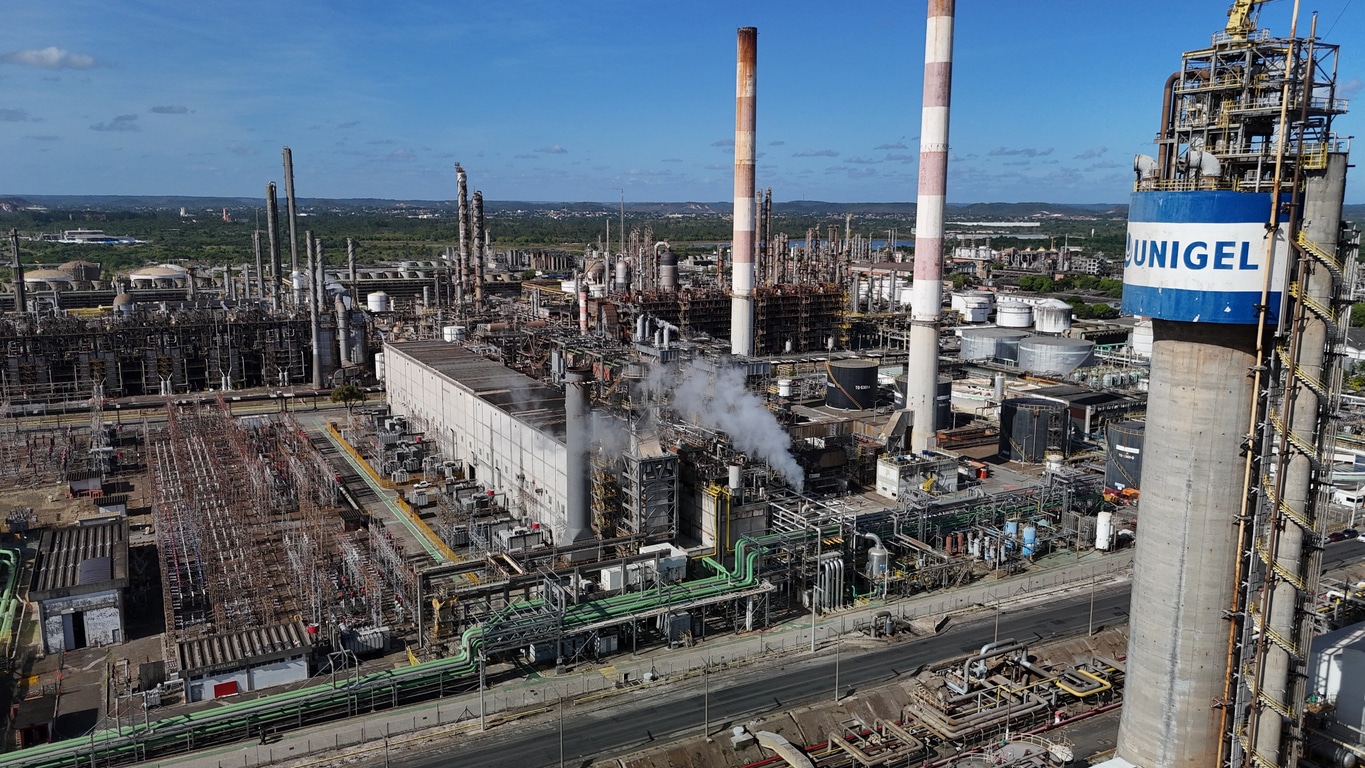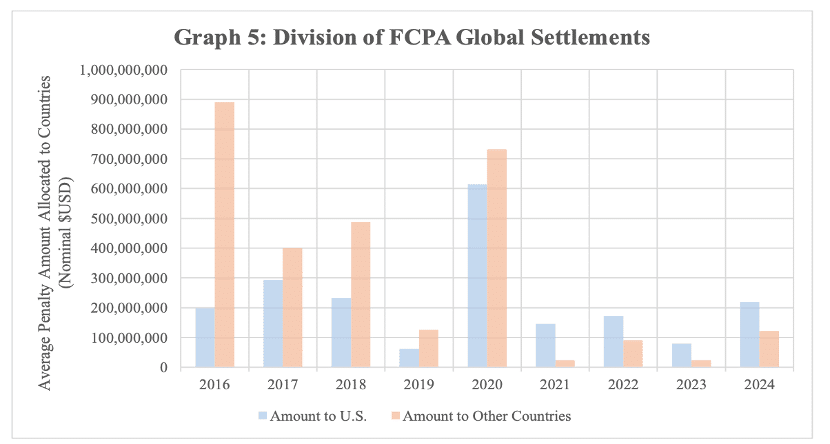Evaluating the Effectiveness of the FCPA Through the Odebrecht Settlement

Since its enactment in 1977, the Foreign Corrupt Practices Act (FCPA) has served as the United States’ premier tool for deterring, investigating, and prosecuting bribery of foreign public officials by U.S. persons and companies. According to the leading whistleblower law firm, Kohn, Kohn & Colapinto (KKC), the FCPA remains “the most powerful and effective transnational anti-corruption law in the world.” The FCPA’s strength lies in its transnational reach: “When foreign companies obtain business through bribes and other corrupt means, it harms American businesses who are competing in that marketplace.” Historically, the U.S. has handled approximately 95% of all FCPA cases, demonstrating its leadership in combating global corruption. The record of multi-billion-dollar sanctions, corporate resolutions, and widespread ripple effects indicates that the FCPA has had a measurable impact. The landmark enforcement action against Brazilian construction giant Odebrecht S.A. illustrates how the U.S. anti-corruption regime operates within a broader foreign-affairs framework.
Odebrecht received the largest ever U.S. monetary sanction of $3,557,626,137. The company admitted to paying “over USD 788 million in bribes to public officials, political parties and their officials, or political candidates from Brazil and 11 foreign countries.” The involved countries were Angola, Argentina, Colombia, the Dominican Republic, Ecuador, Guatemala, Mexico, Mozambique, Panama, Peru, and Venezuela. In these countries, bribes were associated with over 100 projects, with contracts generating $3.336 billion in profits over 15 years.
Due to the brave whistleblowers who came forward, Odebrecht entered into a plea agreement with the Department of Justice (DOJ) on December 16, 2017. As to why the Brazilian government was unable to prosecute Odebrecht, the Organisation for Economic Co-operation and Development (OECD)’s Phase 4 Evaluation of Brazil explains that Brazil’s current anti-corruption legislation fails to detect or enforce foreign bribery offenses. Thus, justice for whistleblowers is only possible when Brazilian prosecutors seek outside help. The Odebrecht prosecution is a prime example of Brazil’s legislative weakness, as it had to file with the United States (U.S.) to use stronger anti-corruption laws with larger sanctions.
The U.S. encourages international collaboration as it’s highly receptive to anti-corruption efforts. “[Odebrecht] illustrates the importance of our partnerships and the dedicated personnel who work to bring justice,” said Assistant Director Richardson of the FBI’s Criminal Investigative Division. “Our commitment to work alongside our foreign partners to root out corruption across the globe is unwavering, and we thank our Brazilian and Swiss partners for their tireless work in this effort.”

(Graph 5. Division of FCPA Global Settlements. Duke Law. The Rise of Global FCPA Settlements, p. 21)
The U.S. returns part of the sanctioned funds to the prosecutors, as victim compensation or criminal penalty accreditation, underscoring the mutually beneficial nature of cooperation. In Odebrecht’s settlement, the U.S. and Switzerland agreed to receive 10% of the criminal penalties each, with Brazil receiving the remaining 80%.
The official penalty was $2.6 billion. However, the U.S. reduced the amount it would collect by $167,000,000, leaving Odebrecht to pay $2,433,000,000. Over 90% of the settlement’s total penalty was shared in global pay distribution:

(United States v. Odebrecht S.A., Foreign Corrupt Practices Act Clearinghouse. Stanford Law School.)
*The enforcement penalty and the global distribution differ in total amount due to reductions issued, specifically by the DOJ or the SEC
Stephen Kohn, a partner at KKC and a leading whistleblower attorney, praised the Odebrecht Brazilian prosecutors: “Brazil’s Federal Prosecutor’s Service (FPS) is in the forefront of exploiting the transnational nature of foreign bribery laws and cooperating with law enforcement agencies outside of Brazil to accomplish some of the largest and most important Foreign Corrupt Practices Act (FCPA) prosecutions in history.”
Still, according to OECD, Brazil’s failure to establish an effective internal oversight structure undermines its own prosecutors. This is becoming increasingly troublesome as the U.S. has been stepping back from anti-corruption enforcement. Consequently, international prosecutors can no longer rely on prior cooperation with the U.S., and there’s no guarantee that the historic restitution practice will continue.
The solution? Anti-Corruption NGOs say that all countries must pass domestic legislation similar to the FCPA so they can lead their own prosecutions. Anti-corruption efforts cannot exist only in one country without disastrous long-term consequences. With the current framework, if even one country were to change its priorities, as the U.S. is doing, it could shift the trajectory of transnational corruption worldwide.
The Odebrecht case demonstrates both the promise and the limits of the FCPA-based enforcement model. On the one hand, the enforcement outcome — the largest-ever U.S. monetary sanction for bribery (over US $3.55 billion) — underscores the capacity of U.S. law to reach across borders, coordinate with foreign authorities, and impose meaningful consequences on even the most entrenched corrupt networks. On the other hand, the fact that Brazil’s domestic system was unable (or unwilling) to prosecute the scheme and required U.S. assistance accentuates an apparent structural weakness in relying solely on a single jurisdiction to shoulder the burden of global anti-corruption enforcement.
The challenge ahead is less about whether the FCPA works — it clearly does — and more about how the global community can supplement and reinforce its mechanisms. Other countries must build domestic legal frameworks, empower whistleblowers, and collaborate across jurisdictions so enforcement does not grind to a halt as U.S. priorities shift. The integrity of international commerce, the fairness of competition, and the rule of law in vulnerable states all depend on it. The robust sanction against Odebrecht is not a final victory. Rather, it is a benchmark that should catalyze the creation of a genuinely collaborative, multi-jurisdictional anti-corruption architecture, so the global fight against bribery is not contingent on the policies of a single country, but sustained by the shared commitment of many.
Latest News & Insights
February 24, 2026
February 16, 2026





